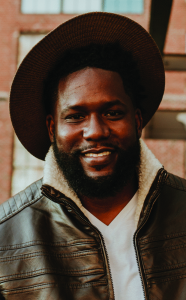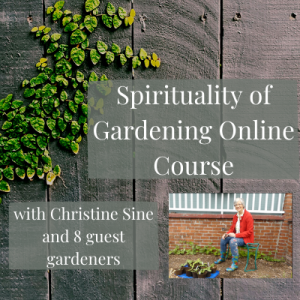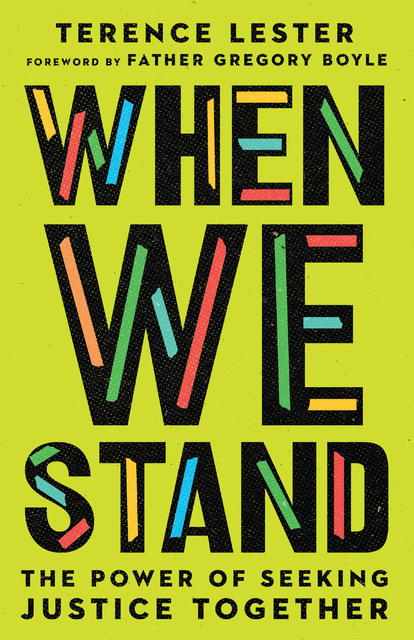Adaptation from When We Stand by Terence Lester, Adapted from Chapter 9, “Bring Someone With you!”
I was introduced to church as a kid by my grandmother, Jessica Lester. In fact, she’s the reason that I was exposed to church at an early age. She had tremendous faith and made sure that I was around godly things when I was about eight years old when my dad was in prison. However, those concepts were very hard for me to grasp, and my childhood faith was based on needing to get things right. I never fully understood what it meant that God was full of grace and loved me even when I messed up. As I grew, my search for identity was cloudy, and I succumbed to many social pressures. I joined a gang, was rebellious, sold drugs, dropped out of high school for a time, ran away as a teenager, and even ended up in jail once after committing a small crime so I could party with my college friends. Fortunately, a judge decided to show me latitude when my mother begged him to let me go home. I can remember his words even now. He said, “This is the only chance you’re getting. I see the pain your mom is in and the worry in her eyes. You need to get right and never look back.” This is the same judge who was notorious for giving young Black men long sentences. I never did look back.
God used that day to cause me to remember all of the lessons my grandmother tried to teach me as a child. Not long after moving back home from college to start over, I received a phone call from my childhood friend Harvey that changed the trajectory of my life. Harvey and I had grown up similarly, each of us having family challenges and searching for identity. But when we were both in our twenties, Harvey found his identity in God. One day, after he’d only attended his new church a few times, he called me. I was lost. I had just gotten out of a jail and had my charges dropped. He extended an invitation to come with him to church. I remember having some reservations about going, but I also knew that I needed something. So I found myself in church with Harvey that next week.
The pastor preached from Romans, and I listened as he talked about Jesus dying for me while I was still a sinner. The verse that he read was this: “But God demonstrates his own love for us in this: While we were still sinners, Christ died for us” (Romans 5:8 NIV). Before that moment, I had never understood the true, unconditional love of God. That good news would shape the rest of my life’s work. The gospel message is what has fueled my desire to influence the lives of others for good, showing God’s grace and mercy to those who have often never experienced it. Love Beyond Walls might have never existed had Harvey not decided to follow that nudge to ask me to attend a small Bible study with him.
Our efforts don’t have to be grandiose to have a profound impact. Harvey dialed my number and then sat next to me; that’s it. He had only been back in church for a short time. He didn’t know all the answers to the questions of Christianity, nor did he hold a master’s degree in theology. He only knew that I was struggling, lost, and in much pain from the journey in my life. He also knew I had the potential to be someone great. He was just being the community that I needed. And he communicated this simple but much needed truth with his actions—he was there with me and so was God the whole time. It still brings tears to my eyes because his invitation changed my life, and Harvey is still working alongside me twenty-plus years later at Love Beyond Walls. We can all extend an invitation to people to come with us to serve in order to benefit their lives and because we believe they’ll benefit the lives of others. Whether we’re inviting them to church or to join us at another kind of organization, a simple invitation can have monumental effects.
FORGET ABOUT BEING AN EXPERT
It’s important to educate ourselves on issues of injustice, but a lack of understanding about every nuance shouldn’t keep us from entering into the fight or from inviting others into it. In order to work for justice, we need to possess a willingness to collaborate with others and to learn from them as we navigate new issues or begin to volunteer for an organization. We rarely have everything figured out when God asks us to embark on a task. Rather, he encourages all of us to become part of what he is already doing, right alongside others who are figuring it out as they go too.
There’s an insidious voice that whispers to us, constantly reminding us that we’re either incapable of taking the steps needed to pursue our ideas or that what we have in mind is simply too difficult to accomplish. But the Bible shows us that this is a lying voice. I’m reminded that the early disciples had no special skills that made them stand out to Jesus. He chose regular, ordinary fishermen like Peter and Andrew to be his disciples—men who possessed no unique talents that would have qualified them for ministry. What they had was a willingness to be led by him. In the Old Testament, God acted through Rahab, a woman who worked as a prostitute and who consequently would have been considered by most to be unworthy for God’s work. He often chose people who were not of high status or fame to carry out his work; their abilities manifested themselves in their bravery and in their dependence upon God. Advocating on behalf of the poor requires no expertise, and neither does showing mercy to a condemned woman or giving to an orphan or a widow.
INVITE PEOPLE INTO COMMUNITY
Finding others for the fight cannot be a one-strategy mission. By that, I mean that our eyes should be trained to see the gifts of not only our friends, family, or coworkers but also those whom we serve. As we forge and develop connections with those who are living in poverty, we should not limit our understanding of such individuals by seeing them solely as people who require care; rather, we should ensure that we also think of them as people who have something meaningful to contribute to the community.
The empowerment, the affirmation of the dignity of all people, is that which makes a true community. It is that which helps every member to flourish.
What would it look like if every person were given an equal chance to succeed and to show up as a fully accepted member of society? This is the real essence of social justice: the pursuit of a society that welcomes each and every person and draws them into a community that is excited about what they have to contribute. Jesus extended an invitation to everyone he came across, no matter their social standing, because he knew that they had all been made in the image of God. Indeed, he did so to such an extent that he was criticized for it by those who didn’t understand God’s intention to restore all people.
Challenge yourself to think about the people you know, and catalog the skills of your friends, family, and coworkers. Then begin to cast a vision for each of them. Let them know that you see them.
Adapted from When We Stand by Terence Lester. Copyright (c) 2021 by Terence Brandon Lester. Published by InterVarsity Press, Downers Grove, IL. www.ivpress.com
Bio for Terence Lester

Terence Lester is the founder of Love Beyond Walls, a nonprofit organization focused on poverty awareness and community mobilization. His campaign #LoveSinksIn, which provides handwashing stations for the poor, has been featured on Good Morning America and CNN and in Essence and Reader’s Digest, and he was named by Coca-Cola as one of their History Shakers. Terence is the author of I See You and When We Stand.
The Spirituality of Gardening Online Course is available for 180 days of access for only $39.99. This interactive course includes video sessions with Christine Sine as well as 8 other guest gardeners. Visit our store page for more information.


